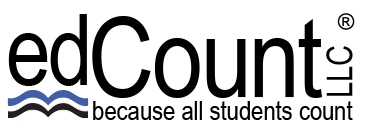edCount helps state and local clients develop and implement a strategic plan for integrating standards into the instruction, culture, and practice at schools. These plans may focus on academic content standards, English language proficiency standards for English learners, or modified or extended academic content standards for students with disabilities.
edCount @Work
edCount Develops Content Modules to Support Tennessee Educators
As the K-12 instructional and assessment climates continue to evolve in response to emerging research and new policies, test formats, and frameworks for academic content standards, education practitioners need to reconcile existing practices in their own schools and classrooms with larger national shifts. For those who work with students with significant cognitive disabilities, there are additional needs and variables practitioners need to consider when keeping up with the shifts in general classroom instruction and assessment. These practitioners know and understand the importance of high-quality instruction in students’ long-term success, and the need to seamlessly align instruction and assessment. For any assessment, but especially for alternate assessments based on alternate achievement standards (AA-AAS) for students with significant cognitive disabilities, classroom instruction is an integral piece of the overall assessment system. This discussion is particularly pertinent to science instruction and assessment, with the recent shift in science instruction spearheaded by the National Research Council’s (NRC) A Framework for K-12 Science Education (2012).
To reduce potential barriers to accessing the three dimensions of science education (i.e., Science and Engineering Practices, Crosscutting Concepts, and Disciplinary Core ideas) for students with significant cognitive disabilities, edCount has worked with state departments of education to provide instructional supports in science for both special and general educators. Specifically, resources for Special Education teachers that align with federal and state expectations (e.g., grade-level and content-specific standards), current research, and best practice, but also reflect the specific and immediate needs of the students in their classrooms, are vital to ensuring alignment between instruction and assessment. The implementation of well-designed, evidence-based instructional supports can help practitioners who have a range of science knowledge and experience in teaching science develop a common understanding of the large-and small-scale goals of science instruction for all students.
From 2015-19, edCount worked directly with the state of Tennessee to create content modules to provide information to help educators increase their understanding of grade-appropriate science concepts, knowledge, and skills to support effective planning or modification of existing science instructional units for students with significant cognitive disabilities. The development process and resulting content modules were featured in the Winter 2019 TASH Connections publication entitled Promoting Opportunity to Learn: Rationale and Resources for Science Instruction. This article was authored by Jean Clayton, M.A., Jamie Phlegar, B.A., Charlene Turner, B.S., and Elizabeth Summers, Ph.D. TASH Connections is the online magazine written exclusively for, and by, TASH members. Each issue of TASH Connections offers “provocative articles on breakthroughs in the disability field, and challenges readers to rethink some of the toughest issues affecting people with disabilities, their families and advocates.”
edCount Leads Standards Development for Students with Significant Cognitive Disabilities
Over the past several years, edCount has worked with states and educators to lead the development of extended science content standards in several states including California, South Dakota, and Tennessee. These standards represent the academic expectations for students with the most significant cognitive disabilities and are used to guide instruction and assessment for this student population.
